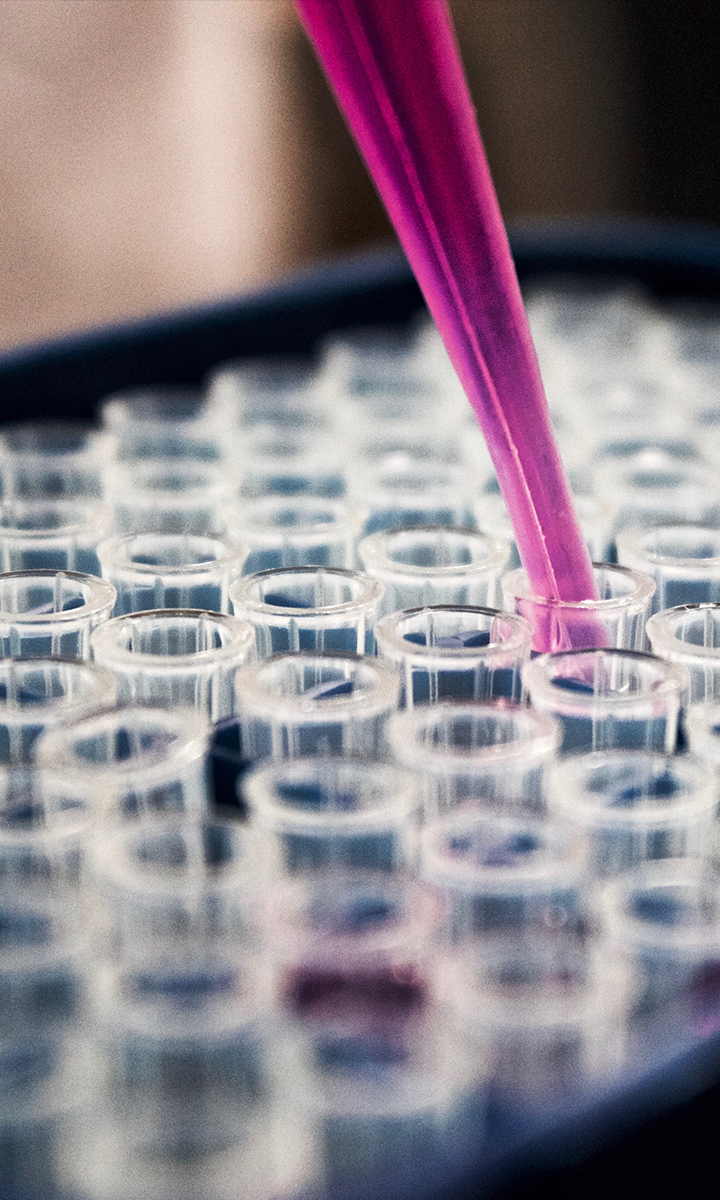The last 30 years have been a revolution in the treatment of Inflammatory Bowel Disease (IBD). Healthcare professionals have incorporated into their therapeutic arsenal new molecules that have been shown to be highly effective in Crohn’s Disease and Ulcerative Colitis. In addition, these molecules have made it possible to expand the therapeutic options available to the patient and to move towards Personalized Medicine. We are talking about monoclonal antibodies.
News
Biologic treatment for Ulcerative Colitis: a therapeutic revolution
October 13, 2022
Patologies

These new drugs are based on different mechanisms of action to which we are accustomed. This is why they will allow, in the very near future, to manage the disease in a much more varied way. Experts predict that the greatest revolution in this field is yet to come. For the time being, they are getting an effective treatment for patients suffering from a moderate to severe outbreak and who have an unfavorable response to conventional treatments or are intolerant and/or have contraindications to such treatments.
What are the biological treatments for Ulcerative Colitis?
Monoclonal antibodies are a type of protein that binds to a cytokine (another type of protein) in the organism called Tumor Necrosis Factor alpha (TNF-alfa). Thus, biological treatment can block TNF activity. This cytokine is one of the molecules responsible for the inflammatory process when an outbreak occurs1 in patients with IBD such as Ulcerative Colitis.
We therefore refer to complex compounds synthesized from an organism or a living cell that are genetically modified with technology and genetic engineering, in other words, by means of an effective and precise biotechnology that allows the manipulation of those cells or microorganisms.
So it can be said that the biologic treatment of Ulcerative Colitis improves patients’ quality of life. That is, unlike other existing medicines, these new biologic drugs allow the disease to be kept in remission for longer periods. In this way, the patient can carry out his daily activities normally without presenting any symptoms.
When and how is administered a biologic drug?
Biologic drugs are indicated for both induction and remission of Ulcerative Colitis. Before recommending administration, the health care professional will focus on the patient’s vaccination status and his immunization status against some infections.
In addition, he will rule out a latent tuberculosis infection. If the patient were in this situation, the bacteria responsible for tuberculosis would be alive in his organism but inactive. Therefore, he would have no symptoms until the virus was activated. In order to rule out this possibility tests such as a chest x-ray, a blood test and a tuberculin test (mantoux) will be performed.
Afterwards, the physician will evaluate which biologic drug to administer the patient from the entire arsenal available. Then, the dose will be stablished and the most appropriate time to start the biologic treatment of Ulcerative Colitis with biologic drugs will be evaluated.
Two forms of administration may be used2 depending on the drug selected:
- Intravenous. The drug is administered at the hospital using a venous line. Administration will be slow to avoid a reaction to the medication. This is how infliximab, its biologic and vedolizumab are administered.
- Subcutaneous. The drug can be administered at home by the patient himself as if it were an insulin injection. Adalimumab and golimumab are administered using this method.
In the case of ustekinumab, the first dose is administered intravenously. Subsequent doses are administered subcutaneously.
Diversity of biologic treatments for Ulcerative Colitis
The approval of infliximab marked a turning point in the treatment of patients with Inflammatory Bowel Disease in general and for those with Ulcerative Colitis in particular. Because it was the first formulation of this family of medicines that came into the hands of the doctor. But it has not been the only biological treatment approved.
There are other active substances belonging to the group of Tumor Necrosis Factor antibodies inhibitors or TNF inhibitor drugs. This is the case of adalimumab and golimumab, as well as the biosimilars of infliximab and adalimumab.
For its part, vedolizumab is an integrin receptor antagonist drug. The objective of this active substance is to decrease the entry of inflammatory cells into the intestine. And it does that by blocking the integrins, membrane receptors that allow the passage of white blood cells and lymphocytes into the intestine.
One of the latest biologic drugs approved has been ustekinumab. In this case, it focuses on blocking the action of interleukins 12 and 23. These proteins are involved in the regulation of the inflammatory response. When they are elevated, activation and a lymphocyte proliferation occurs, which in turn provokes an inflammatory response of the organism.
Side effects of biologic treatment in Ulcerative Colitis
Usually, the side effects of biologic drugs are mild. It is common for the patients to feel tired, to experience some skin reactions, nausea, vomiting, joint or muscle pain, and fever3.
When the biologic treatment is performed by intravenous administration with infliximab, adalimumab or golimumab, the patient may report some reaction. For example, shortness of breath, hives, redness, itching and swelling of the lips and throat, or headache. If this were to happen, the infusion would be stopped in order to resume it at a slower rate. In the following administrations, the patient would be premedicated with corticosteroids.
For their part, patients treated with adalimumab or golimumab may have a skin reaction at the subcutaneous injection site.
In general, all biologic drugs can increase the chances of infection, especially respiratory infections. Therefore, health professionals recommend keeping all vaccines up to date. And, if you have any symptoms of infection such as fever or cough, it is advisable to tell your doctor.
Contact UsFor more information
Contact Us

